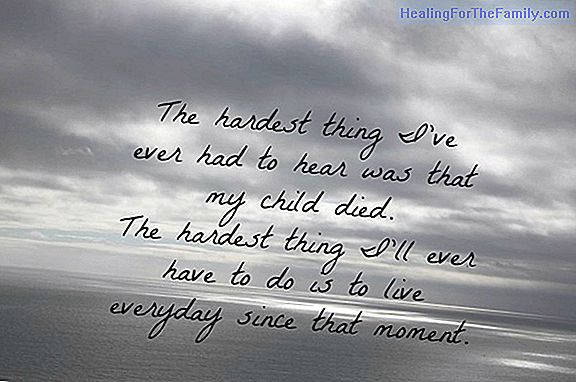How to help children with nightmares
Almost all children have had, have or will have nightmares at some point in their lives. The nightmares , those bad dreams that scare and awaken our children in the middle of the night are normal, frequent and very common in childhood. We, the parents, can do a lot to help our children to reduce the
Almost all children have had, have or will have nightmares at some point in their lives. The nightmares, those bad dreams that scare and awaken our children in the middle of the night are normal, frequent and very common in childhood.
We, the parents, can do a lot to help our children to reduce them following some simple guidelines that we tell you next.
Why children have nightmares

The nightmares are normal between 3 and 6 years old (they may appear before and continue until after 7 or 8 years), but the most 'normal' is that they occur in this age range. Between 10 and 50% of children between 3 and 6 years old suffer nightmares.
Bad dreams or nightmares are due to different factors, some events or daily events can cause the nightmares of our children such as: Un - A bad day at school.
- A day in which we have fought the child excessively.
- Jealousy over the birth of a brother.
- A change of address or school.
What to do and how to help our children sleep peacefully without nightmares
1. Daytime strategies against nightmares:
- First of all and during the day we must make sure, or at least try, that our children live quietly
, away from the stress that accompanies us daily. Let's try not to overload your daily schedule with extracurricular activities and look to spend some time with them in a relaxed and calm way. - Encourage them to draw and play. Drawing and play are means of expression through which children elaborate and express their fantasies and conflicts.With play and drawing, they give vent to a part of their emotions
that could otherwise lead to bad dreams. - Avoid watching movies and scenes of fear. 2. Nighttime strategies, guidelines and rituals before sleeping:
- At night, when they go to bed they should do it without fear and for that it can help
to accompany the child in their room for a while
while relaxing before falling asleep. It is advisable to allow them to sleep with their favorite dolls or toys, in addition we can leave a dim light, the door ajar, which also reassures them a lot and helps them sleep. - Let's take the opportunity to tell them a story, sing to them, talk about nice things
that have happened throughout the day and tell us how much we love each other. In this way the child falls asleep feeling protected in a safe and trusting environment, which greatly reduces the frequency of nightmares and the intensity of them. - When they wake up after a nightmare, we can also help them give an end to the horror scenes
they have lived in the dream. So a solution to recurrent nightmares is to sit down with our son for a moment and give a credible ending, which ends well and which he also accepts. When to worry and ask for help If the nightmares are becoming very frequent and intense
, preventing the family from resting properly and in turn causing a change in the child's behavior, we should consult with a child psychologist, since It is likely that our son is responding in this way to an important emotional conflict.












